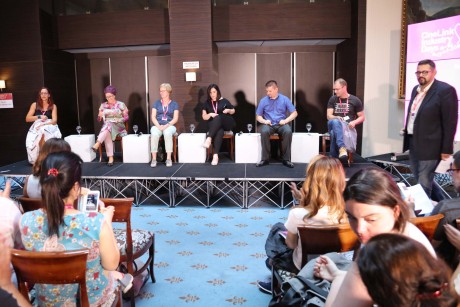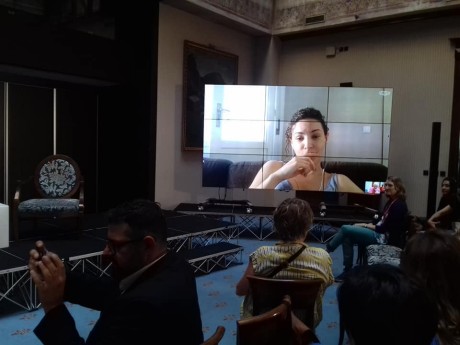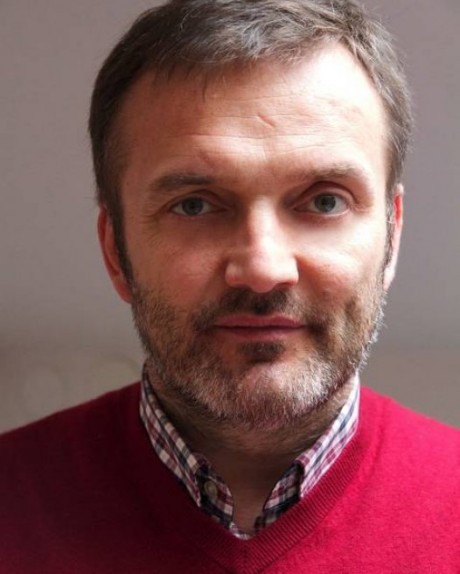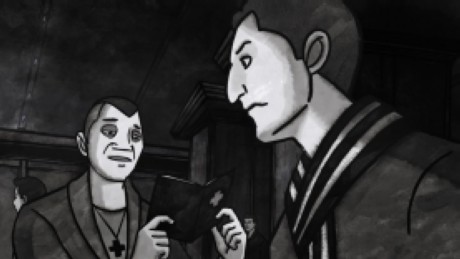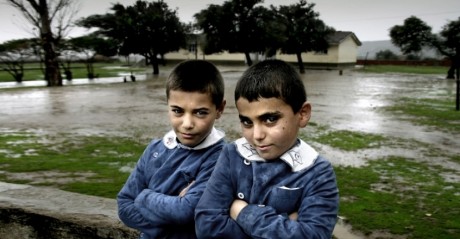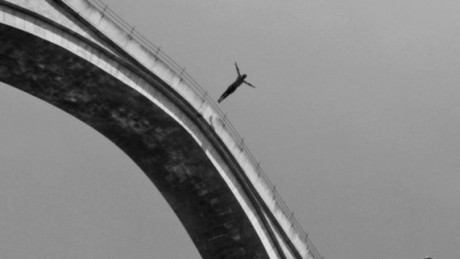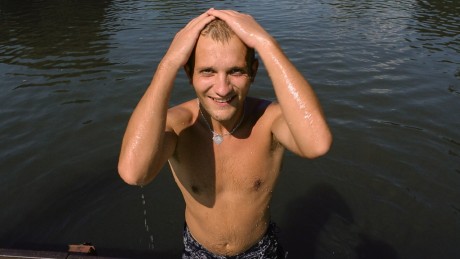Sarajevo hosts an amazing film festival. The variety of programs and projects is overwhelming. Films in many cinemas, discussions and presentations after the screenings, and in the Hotel Europe where workshops take place and the Atrium has full houses for presentations linked to industry matters.
I am happy to say that documentaries have a visible and important place in
the festival. I have already reviewed some of the films in the competition before the festival, now I have had the chance to be in the cinema for film screenings of some of the films that have been included in the “Dealing With the Past” section of the festival.
Full house for the screening of “The Other Side of Everything” by Mila Turajlic, with a short discussion after the film with producer Carine Chichkowsky and HBO’s Hanka Kastelicovà, in the absence of the director, who had to stay in Belgrade because of illness. The film has been written about many times on this site, here is one link http://www.filmkommentaren.dk/blog/blogpost/4096/
And full house for “Chris, the Swiss” by Anja Kofmel with Sinisa Juricic as co-producer and character in a film that I can only characterize as a masterpiece. The story about the Swiss journalist, who goes to Yugoslavia to cover the war and ends up being killed, when he joins a paramilitary group with the ambition to get material for a book. The screening was transmitted, in collaboration with the Rotterdam IFF, to 8 places in neighbouring countries with Q&A with Anja Kofmel and Sinisa Juricic, led by my tutor colleague Robert Zuber from the “Dealing With the Past”. The film is a superb example of how you can connect animation (the director is animator) with interviews, archive material from the war and footage of the wo going around to the places, where “it” happened. I had seen it before on my computer, it is a total different experience to sit in a full cinema – the music, the sound score.
And full house for Nebojsa Slijepcevic and his “Srbenka”, where I had the pleasure to lead the discussion after the film, more than half an hour, and I dare say that the film was well received by the audience. My review can be read on http://www.filmkommentaren.dk/blog/blogpost/4308/
The film had the regional premiere here in Sarajevo and it was obvious to ask the director: What will happen when the film is premiered in cinemas in Croatia – will it raise tensions as did the theatre play did when it was performed in Rijeka in Croatia. Let’s see, the director answered. The film is a piece of art, so well put together, so many interesting cinematic solutions, and because of that the story about being a Serb in Croatia is so touching and thought-provoking. It is universal, I was thinking, easy to refer it to how it must be to be a muslim in Denmark today. And it is about theatre, what an interesting director Oliver Frljic is, and a very controversial character in his home country, a provocateur some called him at the screening.
And full house for “Occupation” (review on http://www.filmkommentaren.dk/blog/blogpost/4300/), the omnibus film, where the Polish director Magdalena Szymkow and Hungarian producer Ágnes Horváth-Szabó took part in the Q&A. Szymkow told the audience how she started with archive material from the music festival where many artists left as a protest against the invasion by the Warsaw Pact countries and then found the love story that made the title of the film appear, “I’m Writing to You My Love”.
Four strong films, all well received, by an audience, mostly young people; there is hope for creative documentaries as long as there is an attendance as here.
https://www.sff.ba/novost/10863/dealing-with-the-past




